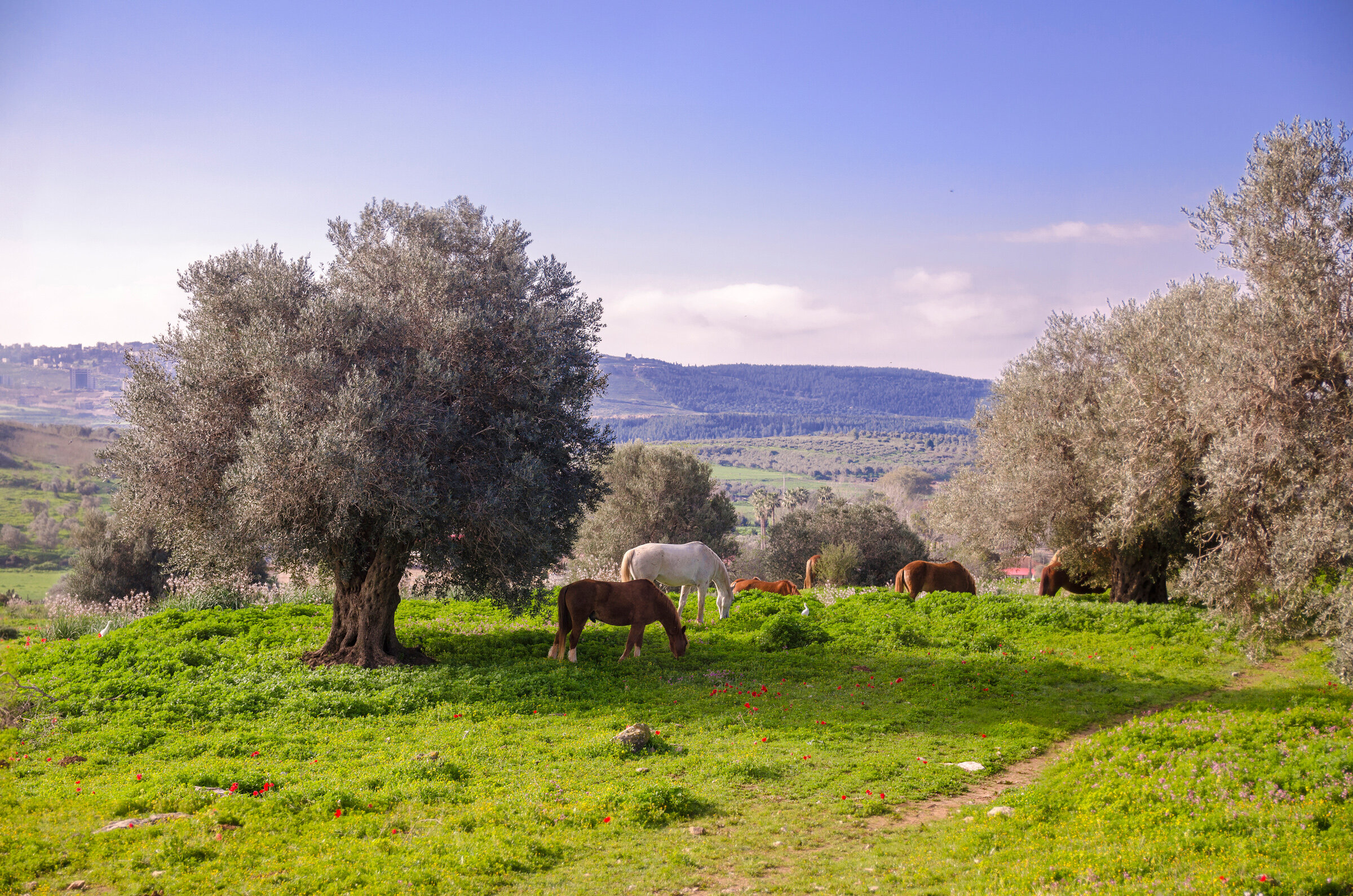five experiences that have helped me understand the Bible better
/Though I haven’t been in a formal Bible classroom for seven years, I will always call myself a Bible student. As a disciple of Christ, I am learning that His teaching can happen through anything and anyone, at any time, and anywhere; while I feel immensely blessed to have had the short year of intensive Bible scholarship that I did, the greater challenge at times has been to remain in that seated position at His feet no matter where I am in life. To, like Mary in Luke 10, find space to listen to His Word even as regular life goes on buzzing around me.
Reflecting on this recently, I’ve been amazed by how so many of my life experiences have lent a richness to my study of the Bible and knowledge of God that I couldn’t have gained in a classroom. God’s work is constant, and often goes unnoticed in the moment, but I’m amazed by how He has worked through some of my most mundane or seemingly-unrelated experiences to build me into the disciple He wants me to be. I wanted to share some of the experiences that I think have impacted me the most, in hopes of encouraging you to reflect on your own.
1 / GROWING UP ON A FARM
I didn’t know, while I was living the first eighteen years of my life on a farm in eastern Washington, that God was teaching me some valuable things I’d take with me in learning how to study the Bible and understand His character—but now I can hardly imagine how different my perspective on God’s Word would be without this background. The Bible was written largely about an ancient, agricultural, hill-country people. Their lives were a struggle of survival, dependent on weather and crops and harvests and animals; in particular, they had to depend on one another, because it took each member of the family doing his or her part to keep them all alive. By comparison, my farm life was downright cushy, but I did get to taste what it is to be mutually dependent on each other, on creatures, and on the earth; I can understand fairly easily the countless agricultural metaphors the Bible uses to describe God, His work, and His wrath. Although there is still a huge chasm in understanding to overcome between my own culture and that of the ancient Biblical author, I think it would be that much wider if I had grown up on a postage stamp yard in the American suburbs instead.
2 / MY YEARS RAISING SHEEP
For about a decade when we were still living at home, my sister and I raised a small flock of Suffolk-Hampshire sheep together as 4-H projects. Nothing has informed my understanding of human nature and God’s relationship with His people quite as colorfully as my experience with sheep, which are, of course, one of the most-used illustrations in the Bible—from the ancient sacrificial system to Psalm 23 to Christ Himself, the “Lamb who was Slain.” When I read the passages in Scripture that compare God’s people with sheep, I know exactly which traits inspire them: chiefly, helplessness and fear. Humans and sheep have in common a total lack of meaningful ability to control their circumstances and protect themselves, which leads to a constant baseline instinct of fear, and frequently inspires them to make very unwise choices.
This has helped me to understand that God doesn’t look on me with contempt for my sinfulness and distrust, but with compassion for it. He knows that, deep down, my lack of faith has its roots in fear, and as the Good Shepherd, He wants to rescue me from the dire consequences of the sinful choices I’ve made out of fear and call me gently into the safety of His fold. If I know anything about dealing with sheep, it’s that responding with aggression and anger to their already-precarious state of mind will inevitably cause them to scatter in panic and flee. It breaks their trust and makes me, the one who was supposed to shepherd and protect them, into a predator and a threat. Thankfully, God’s shepherding of my own fearful heart is patient and perfect.
3 / ENGLISH LITERATURE CLASS
When I was a junior in high school, I enrolled in a college-level literature class that was taught by Mrs. Kruse, locally famous for her quality teaching and standard of excellence. I read short stories and books from a range of literary greats, such as D. H. Lawrence, James Joyce, Leo Tolstoy, William Shakespeare, Jack London, Geoffrey Chaucer, and Herman Hesse—and then was expected to write analytical persuasive essays on various aspects of each work in under an hour. Far more than learning the content of a handful of famous stories, this class taught me how to think critically and quickly, how to ask the right questions, and how to search carefully for and articulate the answers. I learned how to read the invisible concepts behind the visible words on the page, how to connect ideas from one person’s story to a larger universal truth, and how to see a work as both a whole and its parts at the same time. I find I am constantly called on to use these same skills when I study the Bible, which is a literary masterpiece all its own, a highly complex work that is anchored in a far different context from my own and yet speaks to truth that remains absolute regardless of what changes in the world around it.
4 / SEEING THE HOLY LAND
Before I went to Israel the first time, others who had already been there told me how standing in the very places it all happened would bring to life my experience of the Bible. I believed them, but I couldn’t fully grasp how right they were. Seven years and two tours of Israel later, it’s hard to clearly recall what it was like to read the Bible before I could see and smell and taste and touch it in my memory. I have seen the Valley of Elah where David slew Goliath. I remember the caves above Ein Gedi where he hid from Saul. I’ve stood on the ground where Paul departed Israel for Rome, never to return, and I’ve touched the bedrock of Calvary. When I read about Jesus calming the storm, I can smell the wind over the Sea of Galilee, and when He preaches the Beatitudes I can envision the crowd on the hillside. Traveling in Israel made the Bible more than words and stories and characters—it is familiar and colorful and alive.
5 / MARRIAGE
I knew, in theory, all about the “mystery” of marriage as a reflection of Christ and the Church long before I ever got married. Actually being married, however, has pretty much exploded everything I “knew” in theory—in hard but necessary ways. Nothing else has shown me so clearly how insidiously sin has distorted all of God’s good gifts. Woven into my entire understanding of Ephesians 5 was a fallen worldview straight from the curse of Genesis 3, tainting God’s beautiful picture of selfless love and submission working together to bring Him glory with ugly hidden undercurrents of oppression, self-protection, and distrust. But as my husband and I both do the work to unlearn these patterns, I am rediscovering the beauty in God’s original design for humanity in Genesis 1 and 2. He created incredible goodness, and He is in the midst of an incredible redemption plan for all that goodness—which He has invited you and me to be part of, married or not! The story of the Bible isn’t just something to read and study, it’s also something we have active roles in as God’s children, looking ahead to when all that has been defiled by sin is made new and glorious.
Marriage has also given me a special appreciation for the relentlessness of God’s love for His people, even and especially when they have repeatedly failed or betrayed Him. I’ve lived the reality of being failed by and then forgiving the very person who vowed his commitment to me; I have also been the one to fail him and be forgiven. Through it all, the marriage covenant stands firm, a stalwart reminder that so, too, does God’s covenant love for us—regardless of how poorly we treat Him sometimes.
BONUS / HAVING A BABY (TBD)
So, I have not actually had a baby yet, but I have spent the last 5+ months carrying one, so I am currently very aware of all the birth and parent-child language God uses in the Bible! Stay tuned—I have a feeling this one is going to rock my world. (Baby girl is expected September 2020!)
Your turn—what are some of the unexpected or everyday things you’ve experienced that God might be using (or want to use) to help you know Him more? Your list will likely look a lot different from mine, but at the same time, it’s probably exactly the list He knows you need. God is teaching us constantly if we have the heart to learn, whether we ever step into a Bible classroom or not.













